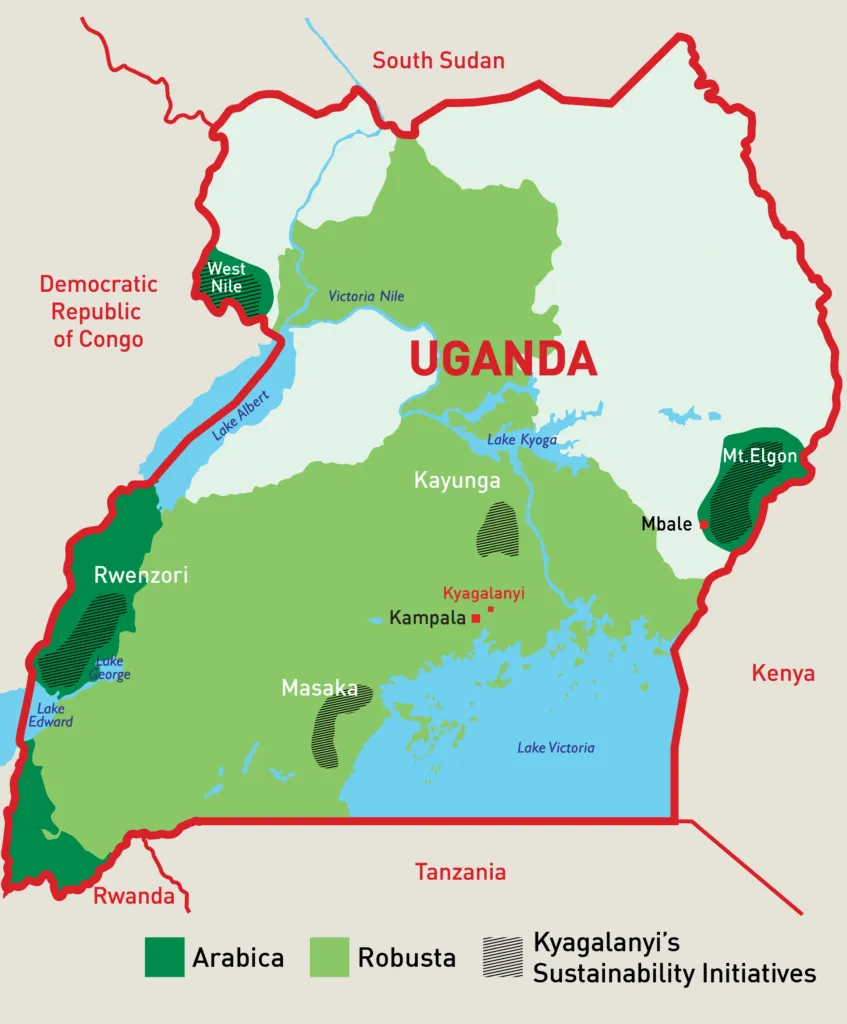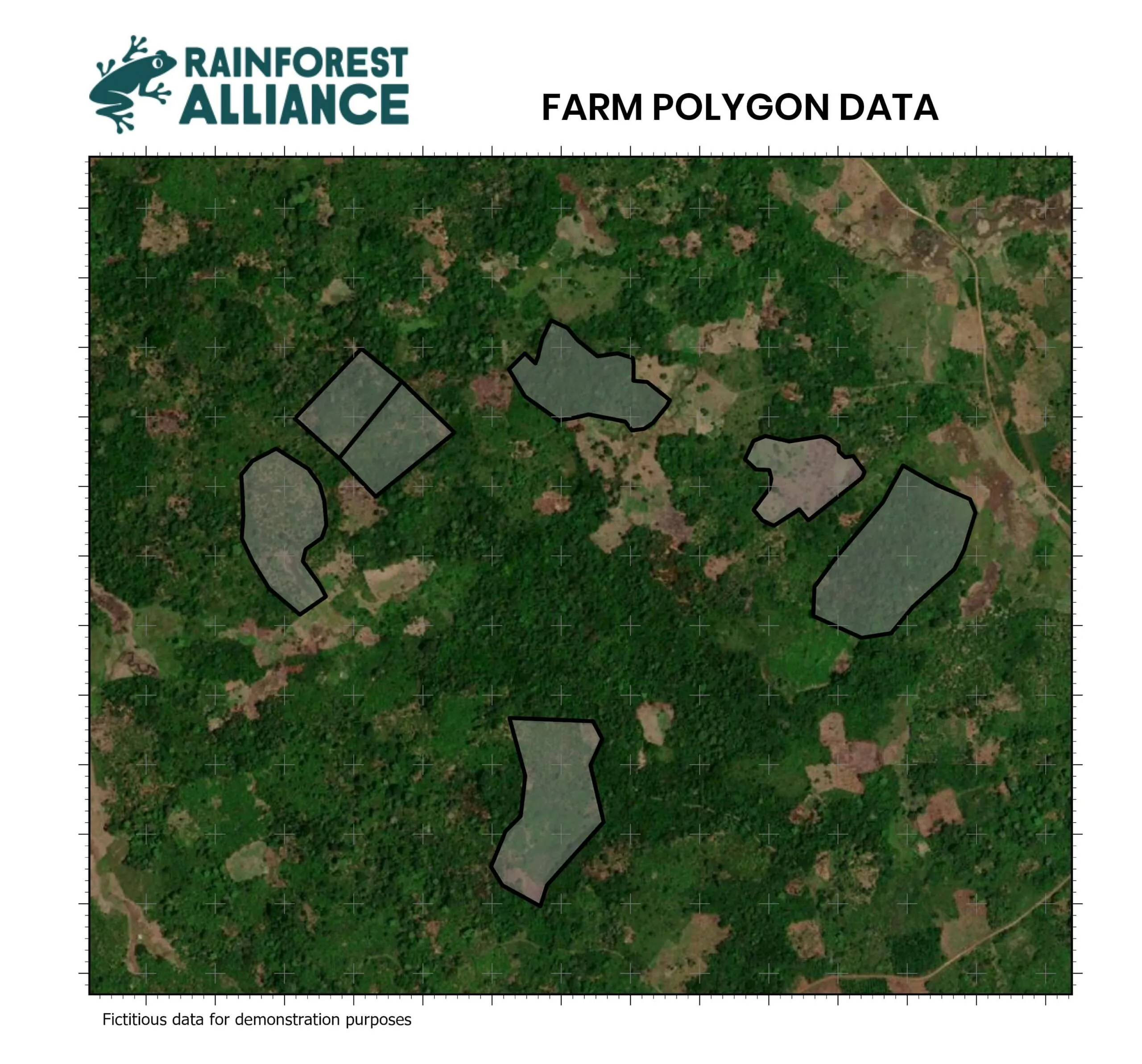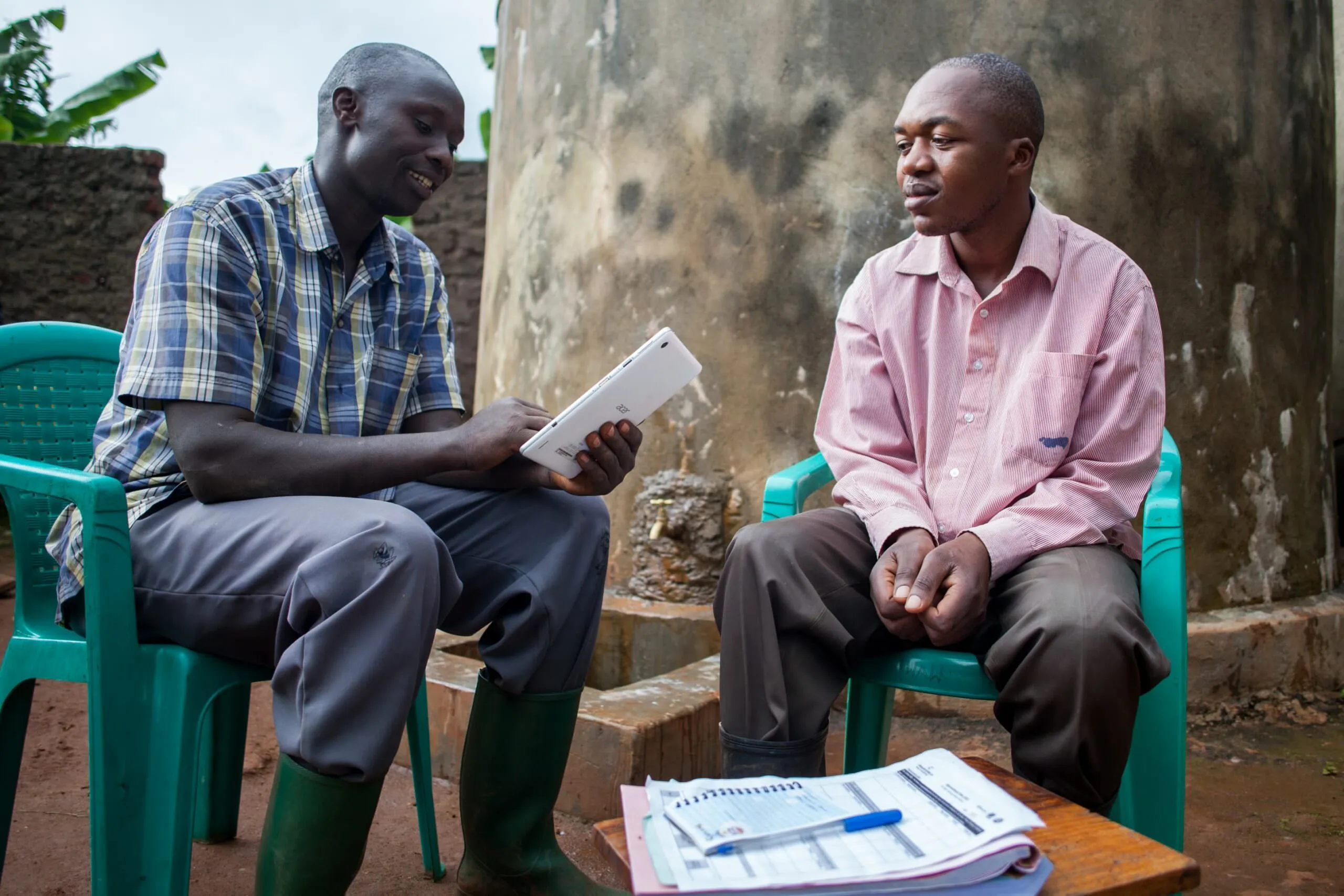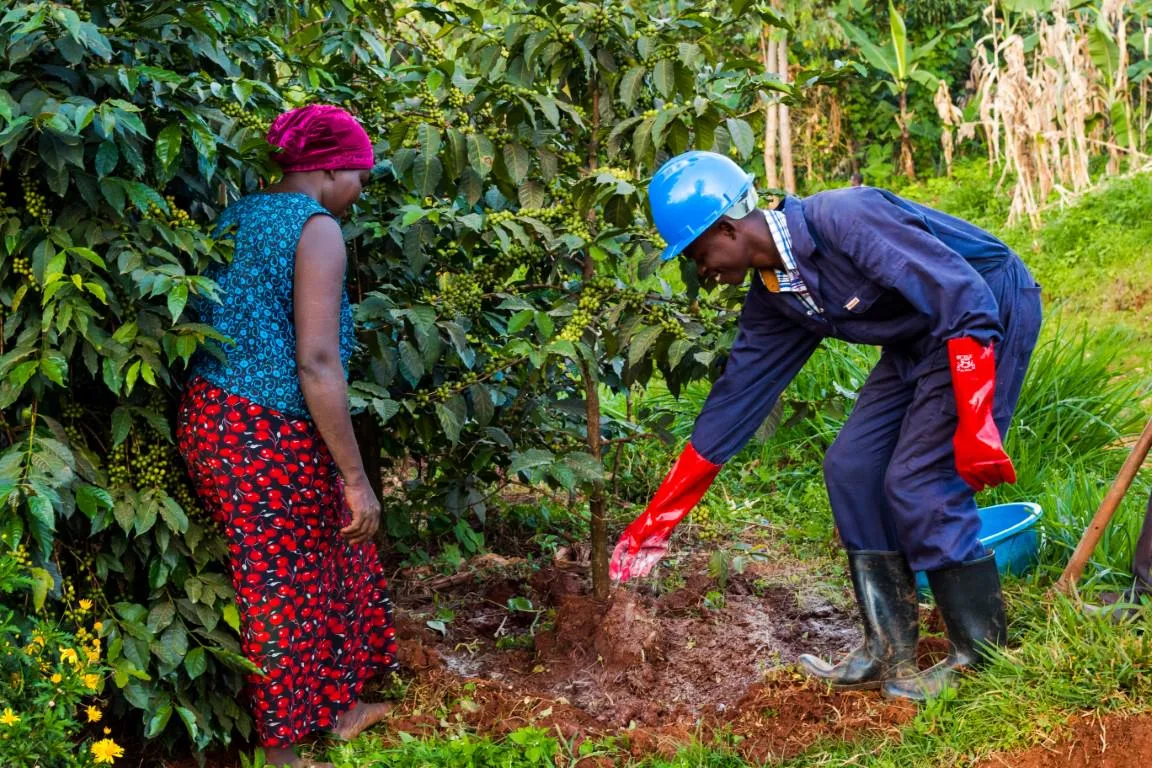How is implementation of the new Rainforest Alliance 2020 Certification Program going? We checked in with Anneke Fermont from Kyagalanyi Coffee, one of the leading coffee exporters in Uganda, to find out. Kyagalanyi is one of 15 early implementers of the new program. Its sustainability team started implementing the new Sustainable Agriculture Standard and certification process in January 2020. In January 2021, Kyagalanyi became the very first organization to achieve group certification against the new standard.
Kyagalanyi has been sharing feedback to help us adjust the requirements and tools as well as to show us how implementation works in different contexts. Our goal is to ensure that farmers and companies understand and can implement the requirements appropriately and that each requirement leads to its intended impact.
Early implementer, Kyagalanyi
Kyagalanyi is a subsidiary of the Volcafe Group, one of the biggest coffee traders in the world. Since 2008 the company has set up several sustainability schemes in Uganda. It is committed to improving the livelihoods of more than 25,000 UTZ and/or Rainforest Alliance Certified coffee farmers. In one of its schemes (Mt. Elgon), Kyagalanyi is implementing the new Rainforest Alliance certification program.

“To prepare for the first audit against the new standard, we first focused on the internal inspections,” Anneke Fermont, regional sustainability manager at Kyagalanyi, shared. “We have a digital app that our field staff uses for inspections, and we went through the new standard and identified where we had to change the app and the type of questions we ask our farmers in the field. After the farms were inspected against the new standard with the updated app, we analyzed the collected data and used the results to set development targets for the next years. For example, currently 25 per cent of the farmers have adopted good rejuvenation practices in their farms and we would like to see that grow to 37 per cent in the next six years.”
Improvement: a more contextualized experience
In the new certification program, there is a greater emphasis on continuous improvement, an approach that Fermont says they find useful at Kyagalanyi.
“The new standard has moved much more into a continuous improvement process than a “tick box yes or no” type of approach. Because with smallholder farmers, it’s never really a yes or no for the whole group—you have thousands of farmers at different levels of adoption, and it’s quite unrealistic to expect that everyone is going to implement everything within just a few years. You always have early adopters, middle adopters, and late adopters. With the new approach, you really have that continuous improvement process in mind.”
Fermont also likes that the new standard enables farmers to choose their own indicators to show progress over time.
“We run a gender program that encourages husbands and wives to make decisions together. Our gender indicators therefore include the number of families that have made a joint household plan. Other certificate holders may want to focus, for example, on increasing the percentage of female staff or female farmers in their groups. They can choose completely different indicators that make sense for their goals.”
Improvement: more dialogue and interaction across value chains
Another key feature of the new standard is a focus on shared responsibility, something Kyagalanyi noted as a plus.
“If I look at the last ten years, I have seen roasters becoming more involved in value chain development and wanting to support farmer programs. The new standard will allow roasters to showcase this involvement more.”
Anneke Fermont, Regional Sustainability Manager at Kyagalanyi
Fermont continued:
“The new requirements for companies, such as making Sustainability Investments and the payment of the Sustainability Differential, will encourage more dialogue between supply chain actors, especially between different levels of buyers. These requirements also give both certificate holders and buyers the opportunity to display the increasing efforts they have been making. As a certificate holder, you can highlight the topics that are central to your region and farm(s)—like climate impact or gender equality. This can help attract a specific kind of buyer. I hope the platform becomes like a matchmaker between roasters, exporters, and certificate holders and encourages roasters to continue investing or to increase their investments in value chain development and farmer support programs.”
Challenge: data collection
With any change, there come challenges. For Kyagalanyi, one of the main challenges they foresee with implementing the new standard is managing polygon data, a type of geo-spatial data that indicates the boundaries of an area representing a farm. Collection of GPS points is already a requirement for certified farms, but the 2020 Certification Program requires them to move towards the collection of polygon data, which is more accurate, over time. Collecting this data and combining it with existing geodata is an important way to track the risk of deforestation and encroachment into protected areas.

“The difficulty I see with the polygon data is related to collecting it and verifying its quality,” Fermont explained. “With thousands of farmers that each may have up to five-six fields at a considerable distance from each other, collection of polygon data will be very time-consuming. In addition, you will have a lot of polygon data to manage in a database. To check whether field staff is doing a good job, you would like to do some verification before you submit the data to the Rainforest Alliance. I’m not yet sure how certificate holders can do this.”
Recognizing these challenges, the new Rainforest Alliance Certification Program outlines a gradual transition to polygon data, with progressively more polygon data required each year. This gives certificate holders time to learn and improve their data collection processes. Moreover, when they upload this data to the Rainforest Alliance Certification Platform, its quality will be automatically checked and validated.
Support for the digital transition
When asked about where additional support from the Rainforest Alliance was needed, Anneke Fermont mentioned that a lot of certificate holders may need support on how to collect, manage, analyze, and use digital data to facilitate the process of continuous improvement.
“Kyagalanyi has been using a digital internal inspection system since 2014, but for certificate holders that still work with a paper-based system, this will be a big leap.”
Anneke Fermont, Regional Sustainability Manager at Kyagalanyi
To address this challenge, the Rainforest Alliance is developing a new digital tool called the Farm Intelligence App. This mobile and web-based app is designed to support the collection of data for group member registry and internal inspections. Early adoption and feedback on the app will begin soon with selected farmers. As of now, digital data collection is not mandatory for most certificate holders: we need to give them time to prepare to make the switch.
Feedback put into action
The feedback that Kyagalanyi shared with us has already resulted in some adjustments to the standard. For example, they pointed out that, in Uganda, farmers plant trees to harvest wood as a pension scheme. That meant that if the standard strictly prohibited the cutting of trees in all circumstances, these farmers wouldn’t plant any trees at all since they would not be able to cut them to harvest wood. This would be counterproductive to our goals of increasing forest cover and biodiversity, which is why we adapted this requirement before publication of the 2020 standard. The new requirements guide farmers to plant and cut trees in a sustainable way.

What’s next?
As we roll out the 2020 Certification Program, we are continuing to gather feedback from the early implementers and other farmers and companies we work with. In January 2021, registration in our certification platform opens for farmers and companies, with audits against the new requirements starting in July 2021. Learn more about timelines for transitioning to the 2020 Certification Program.
All visuals (except for polygon) by Kyagalanyi Coffee


